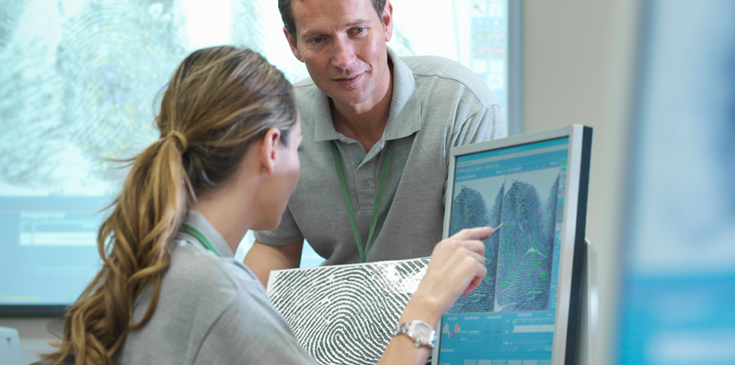
With the popularity of crime scene investigation series and true crime documentaries and podcasts, it seems there’s an increased fascination with forensic science. For some, this curiosity could lead to extra reading, watching, and listening. For others, though, this new-found interest could inspire a career.
Your first (or next) step to specializing in crime scene investigation depends on your educational background and work experience. National University, one of the top graduate schools in San Diego and the surrounding region, offers several crime scene investigation degrees and certificates.
Crime Scene Investigation Degrees: Building a Foundation With a Bachelor’s
First things first. A bachelor’s degree is almost always a necessary requirement to apply for a master’s of any kind. If you don’t yet hold a bachelor’s degree and your long-term goal is to pursue forensic science at the graduate level, a good place to start your education is in a related undergraduate program.
National University’s Bachelor of Science in Criminal Justice Administration, for instance, prepares students for careers in the local, state, or federal level of the justice system. Studies typically include criminal law, corrections, human behavior, court systems, research, and even an introduction to forensic science. For those more interested in the laboratory side of crime scene work, a bachelor’s degree in biology or clinical laboratory science is excellent preparation.
A bachelor’s degree in criminal justice, biology, or a lab science can lead you down many paths, including entry-level positions in forensics. However, they also provide an especially solid foundation for those with a long-term plan of investigating crime scenes.
Crime Scene Investigation Degrees: Getting a Master’s in Forensic Science
If you want to take your crime scene investigation training to an advanced level, earning a master’s in forensic science will help you achieve that goal. A graduate program in this field will cover a wide range of topics relevant to many aspects and stages of the investigation process. Courses, for either an on-site or online degree, may include human anatomy, pathology, toxicology, evidence collection, forensic photography, digital evidence, legal procedures, ethical considerations, research, and more.
Some crime scene investigation degrees offer a change to focus in-depth in one area. For example, in National University’s Master’s in Forensic Sciences program, students choose from two areas of specialization: investigation or criminalistics. As its name would imply, the investigation concentration provides extra emphasis on advanced investigative techniques and procedures. The criminalistics concentration focuses on advanced evidence collection and analysis — including DNA and serology — and it is ideal for those with a bachelor’s degree in chemistry, biology, or another lab science.
Graduate Certificate in Forensic and Crime Scene Investigations
A Graduate Certificate in Forensic and Crime Scene Investigations may be a perfect fit for law enforcement professionals looking to deepen their knowledge, broaden their skills, expand their duties, or grow in their career. Advanced crime scene investigation training may also appeal to evidence technicians, forensic nurses, attorneys, judges, and anyone else who might have a hand in criminal investigations.
Some people might enroll in a forensic science certificate program, such as the one at National University, for continuing education credits or simply professional development. However, depending on your end goal and personal situation, you might wish to ultimately use this certificate coursework as a stepping stone to a master’s degree. (Transfer credit policies and eligibility vary between schools and programs, so be sure to talk to an admissions counselor about your long-term plans.)
From Pop Culture to the Real Thing
While pop culture might inspire some people to pursue a career in forensics, it’s also a rapidly growing field with in-demand expertise: The U.S. Department of Labor reports the need for forensic technicians will grow 17% — much faster than the average occupation — through 2026. Whether you’re starting your first career or transitioning into a new one, you’re sure to find a crime scene investigation training program that meets your needs.
Ready to explore your forensic science options? Learn more about National University’s crime scene investigation degrees, including our Graduate Certificate in Forensic and Crime Scene Investigations.